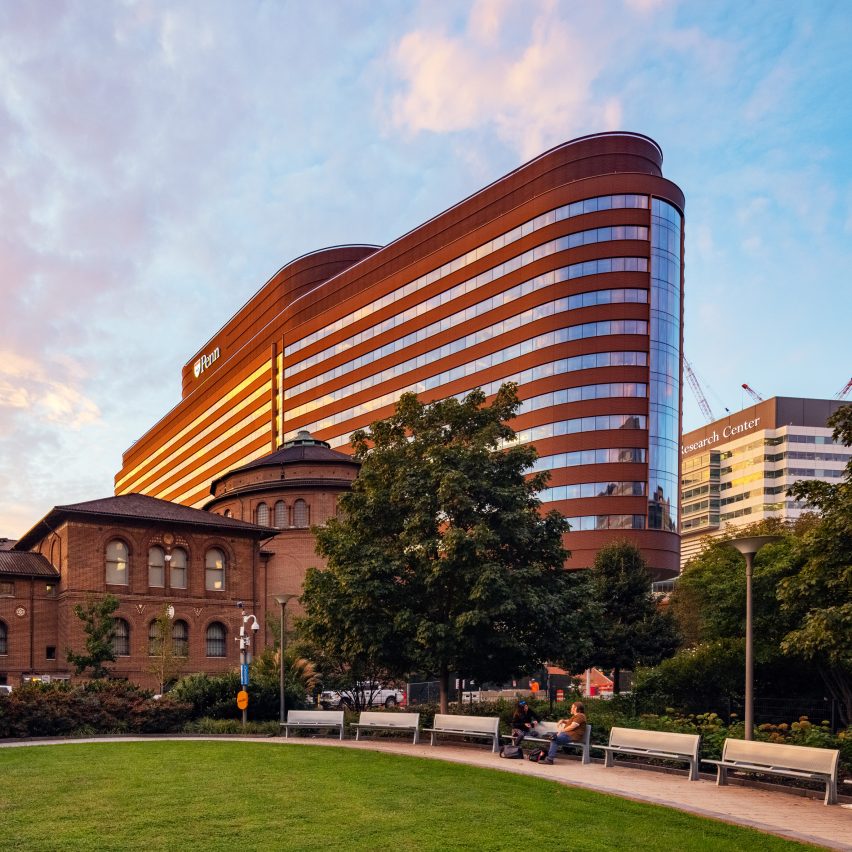
Architecture firm Foster + Partners has designed an inpatient facility for the University of Pennsylvania Health System, which is intended to serve as an example of a "hospital of the future".
Located in the University City district of West Philadelphia, the facility was built beside the University of Pennsylvania and a collection of hospital buildings and emergency facilities.
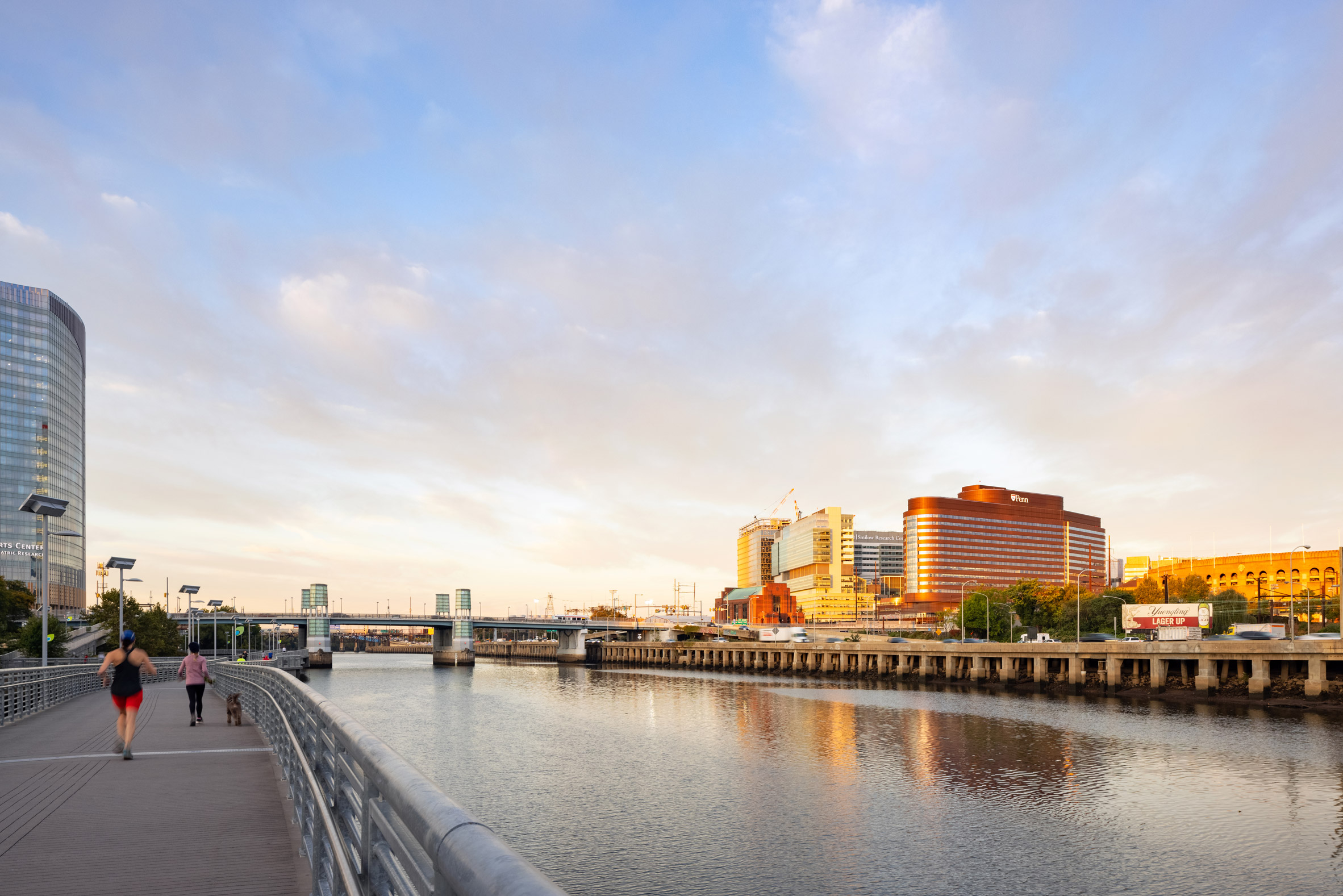
Known as the Pavilion, it was designed by Foster + Partners and features some of the world's leading research laboratories, specialised medical and treatment facilities.
"The new Pavilion at the Hospital of the University of Pennsylvania is designed to completely redefine the future of healthcare," said Foster + Partners founder Norman Foster.
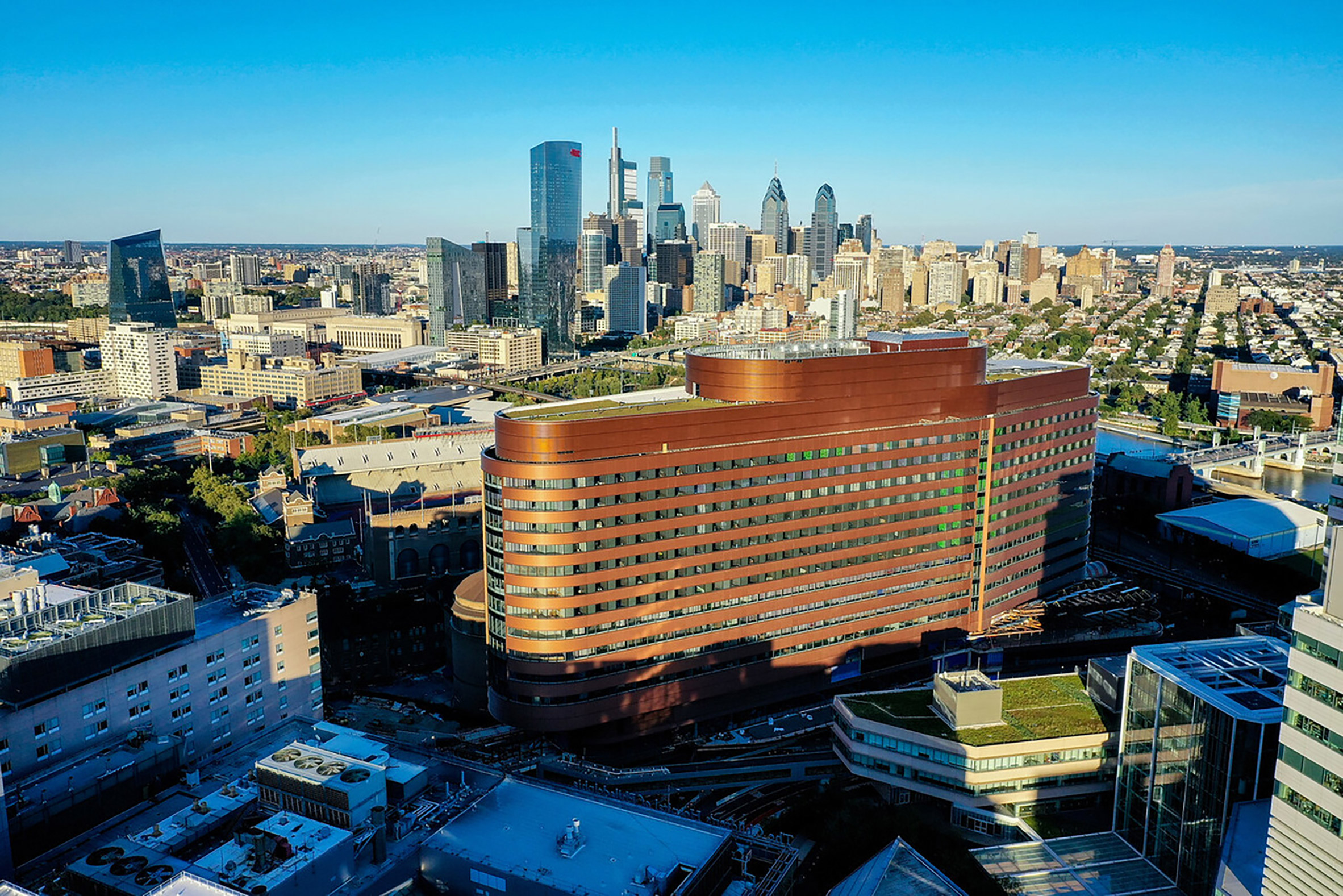
"The building enables innovations that reflect University of Pennsylvania's history of medical firsts, creating a truly flexible facility that moulds itself to the needs of the patient."
"Responsive, adaptable and future-proof, it will allow the hospital to continue its crucial life-saving work and remain at the cutting edge of patient care," Foster added.
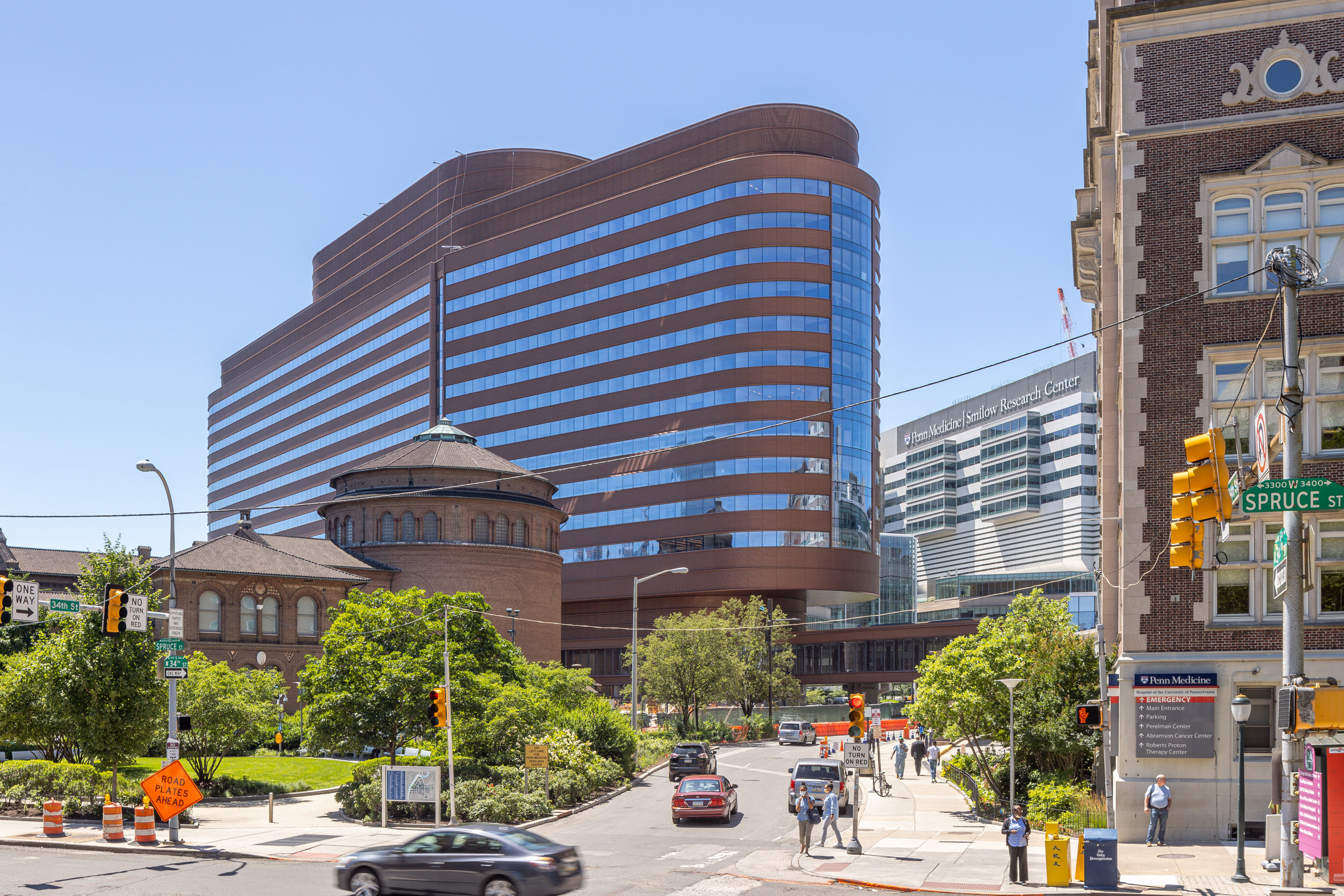
The practice explained that the form and facade of the building were informed by the surrounding architecture across the University of Pennsylvania campus.
A nearby rotunda that marks the Penn Museum was used as a reference point for the Pavilion, which has a long and linear form that tapers and curves at its ends.
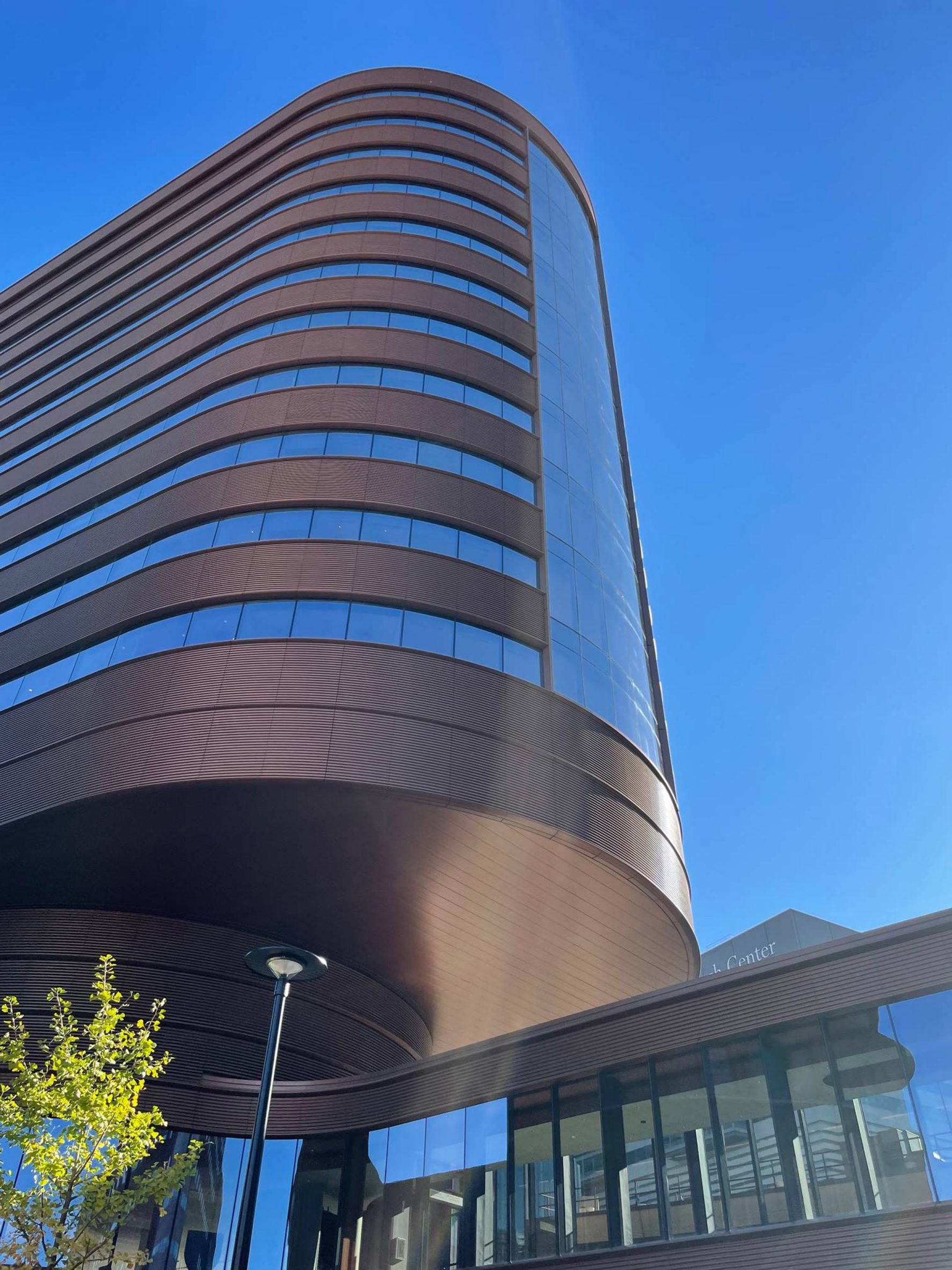
The facade has a curtain wall construction of copper-hued aluminium and glass bands, organised in horizontal rows. The colour of the exterior mimics the red/brown brickwork of the surrounding buildings.
"Its form is singular and sculptural, creating a recognisable new marker on the skyline of the Penn campus," said firm partner Chris West.
Over its 16 floors, the interior was designed with the "human experience in mind". It contains large arrival spaces across the lower levels, and a ground floor filled with artworks including a tree-like sculpture by Maya Lin and a colourful mural by Odili Donald Odita.
Spaces are illuminated with diffused light throughout the interior, and indirect lighting also creates a wayfinding system for both staff and visitors.
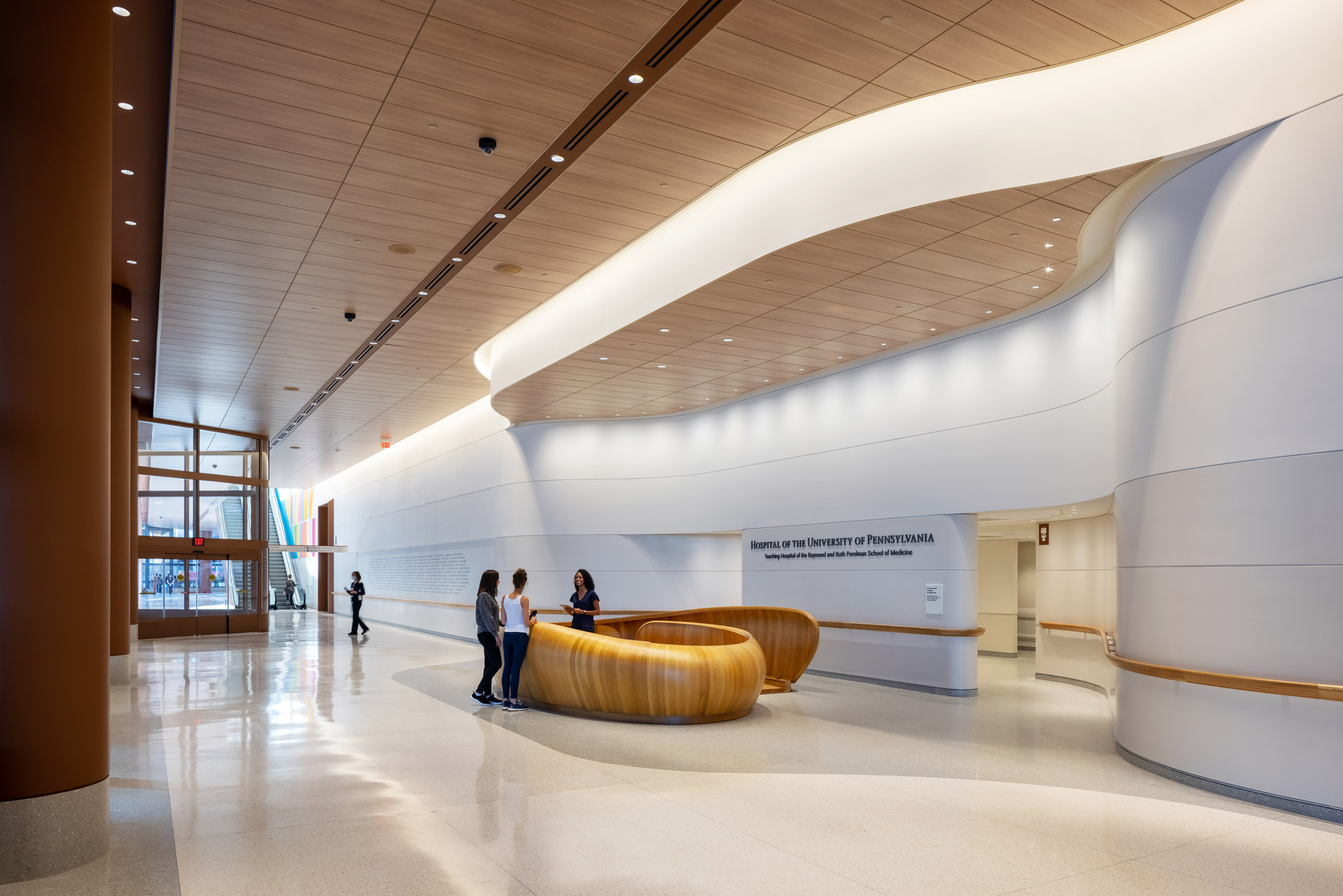
Following the unprecedented circumstances that hospitals faced during the peak of the coronavirus pandemic, care floors and rooms were designed with flexible and adaptable layouts.
The care floors have a completely flexible planning system that allows a typical 72-bed floor to be reorganised into smaller care units.
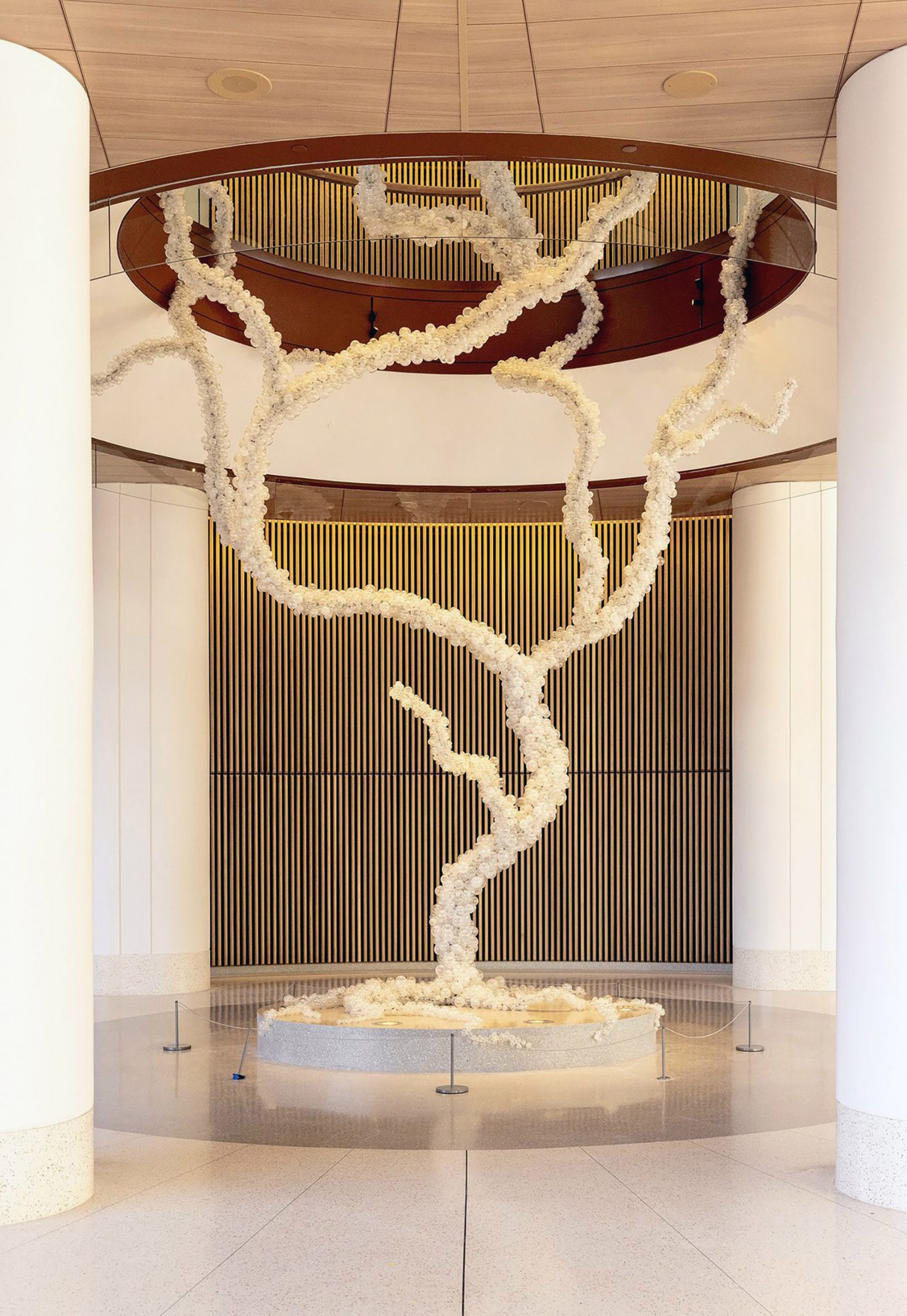
The 504 inpatient rooms have a user-centric design and can be similarly reorganised to maximise patient comfort. They are able host a variety of different functions, including surgeries and intensive care. and also offer space for visitors to sleep.
Staff wellbeing was also prioritised, with private areas containing sweeping views out to the surroundings, flexible furnishings, and also day-lit surgery suites.
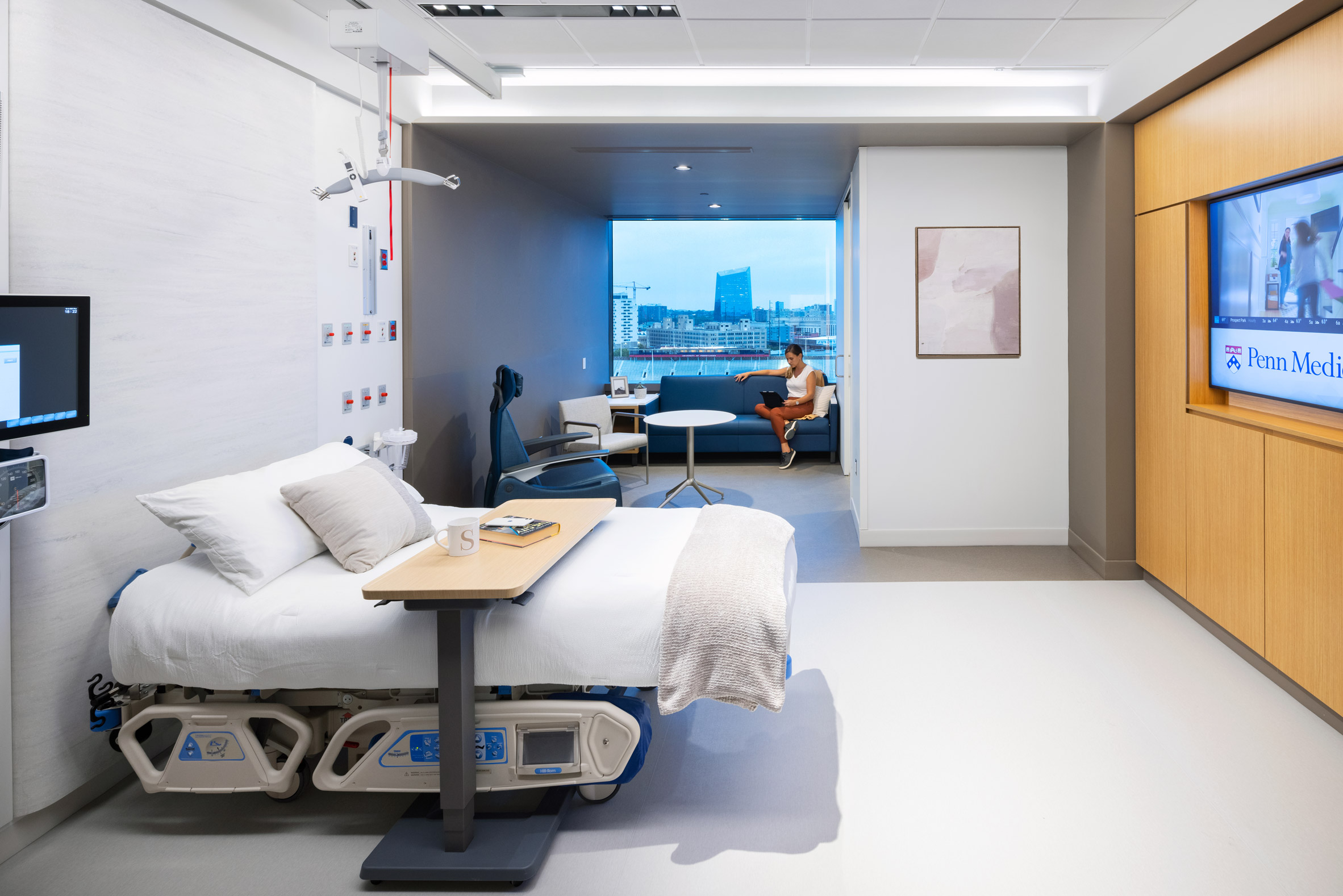
"From the beginning, the integrated delivery team set out to challenge the existing model of healthcare delivery to create a new paradigm for hospitals in the future," said Foster + Partner senior executive partner Nigel Dancey.
"Working collaboratively, we developed innovative ways to research and completely rethink patient care with the wellbeing of staff and patients along with long term flexibility at the heart of our approach."
"The result is evident – an incredible facility for innovation, research and patient care that will set the benchmark for the future," Dancey concluded.
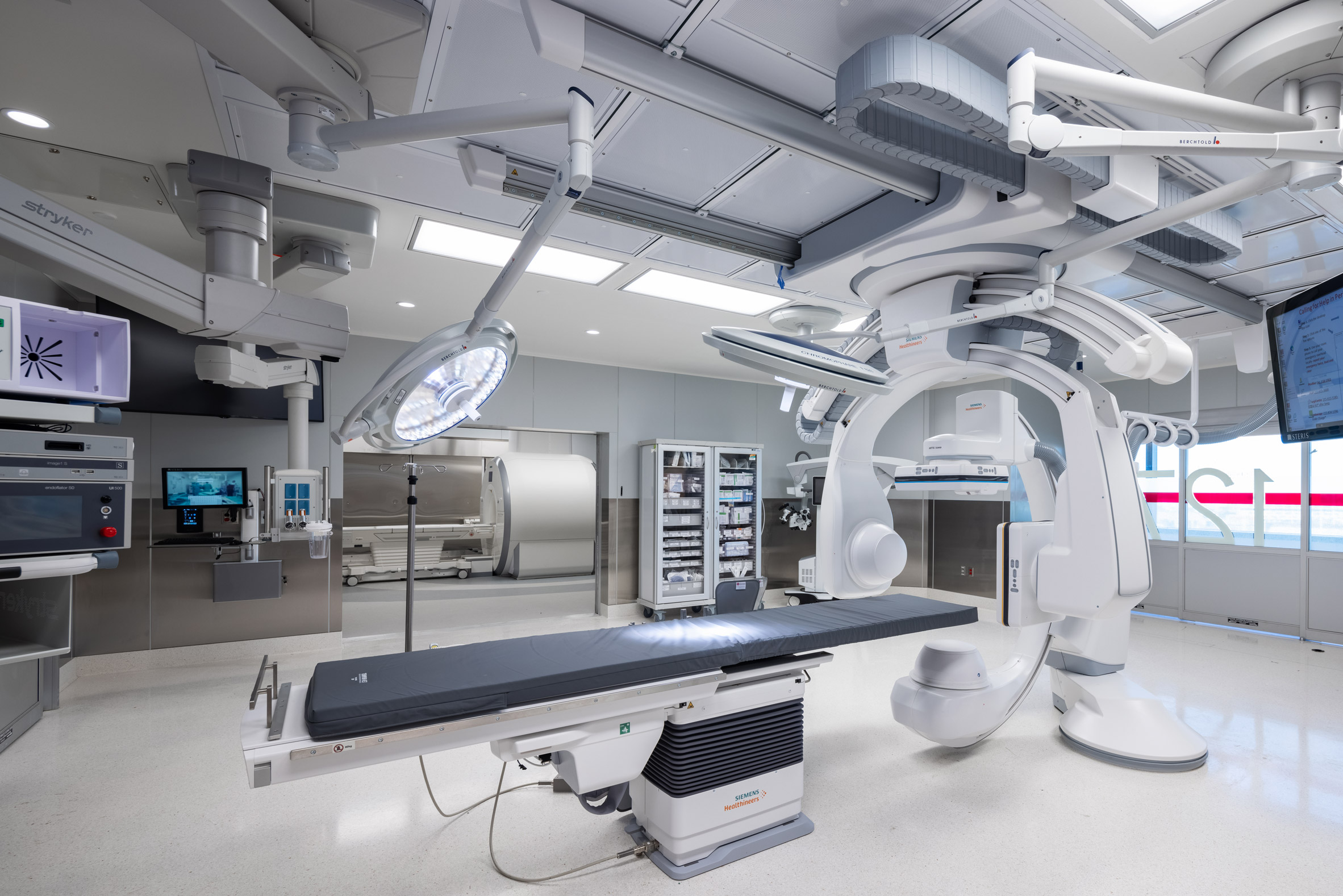
Recent hospital designs include a rammed-earth facility in Nepal by Sharon Davis Design and a a Maternity and Paediatric Hospital in Tambacounda, Senegal, by Manuel Herz Architects.
Project credits:
Collaborating architect: HDR
Main contractor: LF Driscoll/Balfour Beatty
Mechanical engineers: BR+A
Landscape consultant: Ground Reconsidered / Olin
Lighting engineers: Claude Engle Lighting
Cladding: Enclos
The post Foster + Partners completes hospital with striped facade for University of Pennsylvania appeared first on Dezeen.
Tidak ada komentar:
Posting Komentar